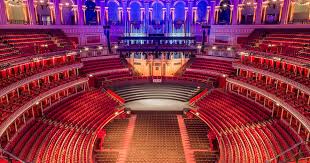The Royal Albert Hall: A Historic Venue of Excellence

Introduction
The Royal Albert Hall in London stands as a symbol of cultural and artistic excellence. Opened in 1871, this iconic venue has hosted an array of events spanning music, dance, and sports, cementing its status as one of the world’s most prestigious concert halls. Its unique architectural design and acoustics have made it a favourite destination for performers and audiences alike, making it relevant in today’s artistic landscape.
Historical Background
Commissioned by Queen Victoria in memory of her late husband, Prince Albert, the hall was designed by architect Francis Fowke and completed by Augustus Welby Pugin. Initially intended to promote the arts and sciences, the hall quickly became a cultural cornerstone of London. Over the decades, it has seen performances from legendary figures such as the Beatles, Jimi Hendrix, and more recently, contemporary acts such as Adele and the Royal Liverpool Philharmonic Orchestra.
Recent Events and Developments
In the wake of the COVID-19 pandemic, the Royal Albert Hall adapted to public health guidelines by hosting virtual concerts and socially-distanced events. The last year has seen a resurgence in live performances, with high-profile events like the BBC Proms returning to their full glory. In 2023, the Royal Albert Hall hosted a range of genres from classical orchestras to modern pop concerts, reaffirming its versatile appeal.
The Hall’s Significance Today
The Royal Albert Hall continues to not only represent the musical heritage of the United Kingdom but also global arts and culture. With its commitment to accessibility, the venue has introduced wider community outreach programs and discounted tickets for students and NHS workers, ensuring that the magic of the hall is shared with all. Additionally, upcoming events include collaborations with diverse artists and thematic concerts that reflect contemporary societal issues, allowing the hall to maintain its relevance in today’s fast-changing world.
Conclusion
The Royal Albert Hall remains a beacon of cultural and artistic significance, bridging generations and genres. With its rich history, ongoing commitment to diversity, and a bright future of programming ahead, it serves as an essential venue that draws visitors and performers from around the globe. As we look forward to another year, the Royal Albert Hall is poised to continue its legacy of excellence and innovation in the arts, reminding audiences of the transformative power of live performances.









